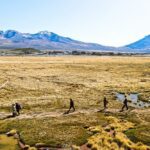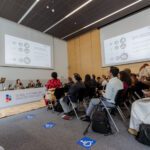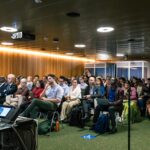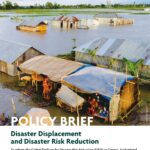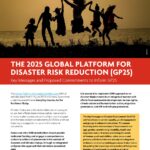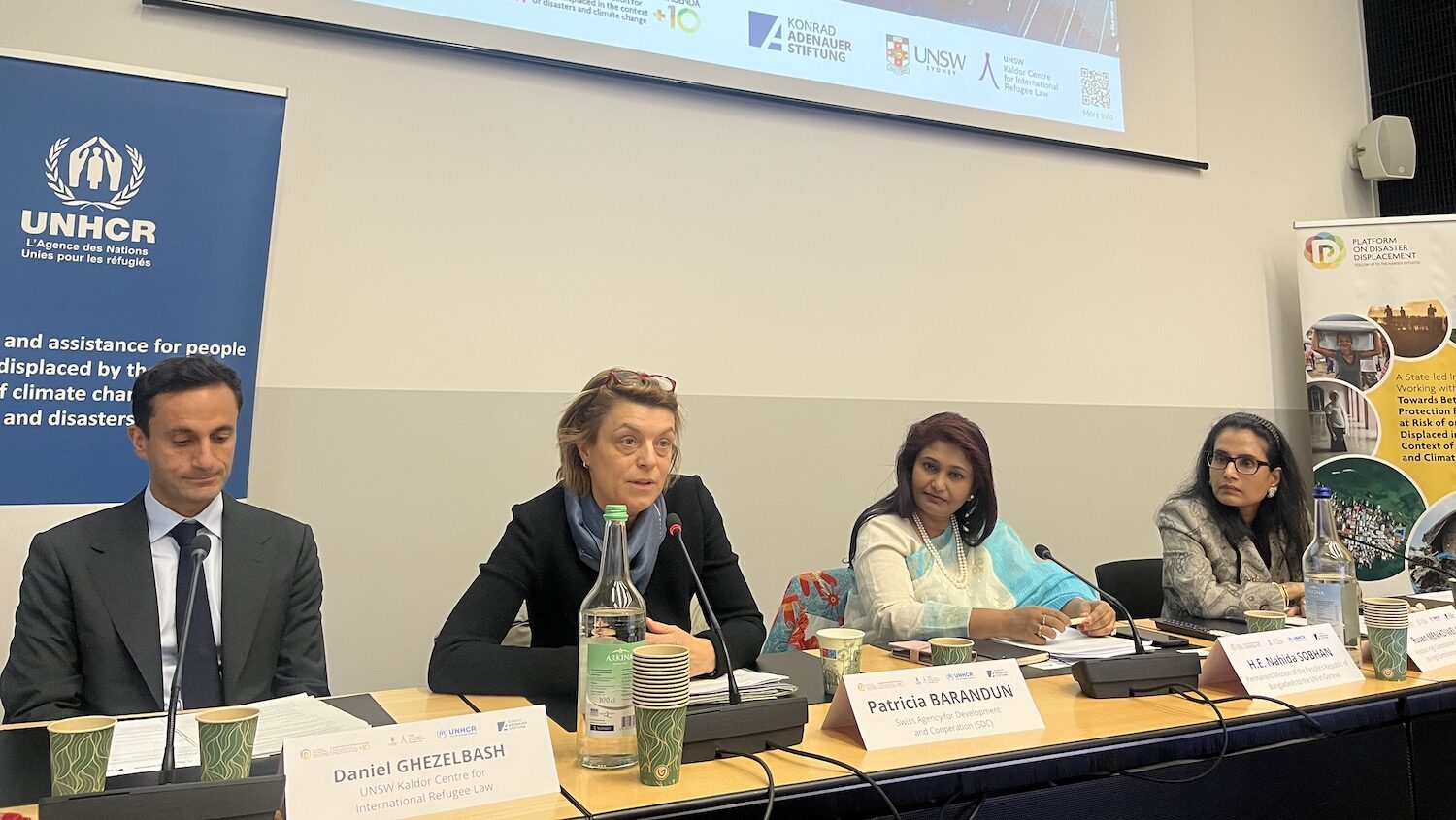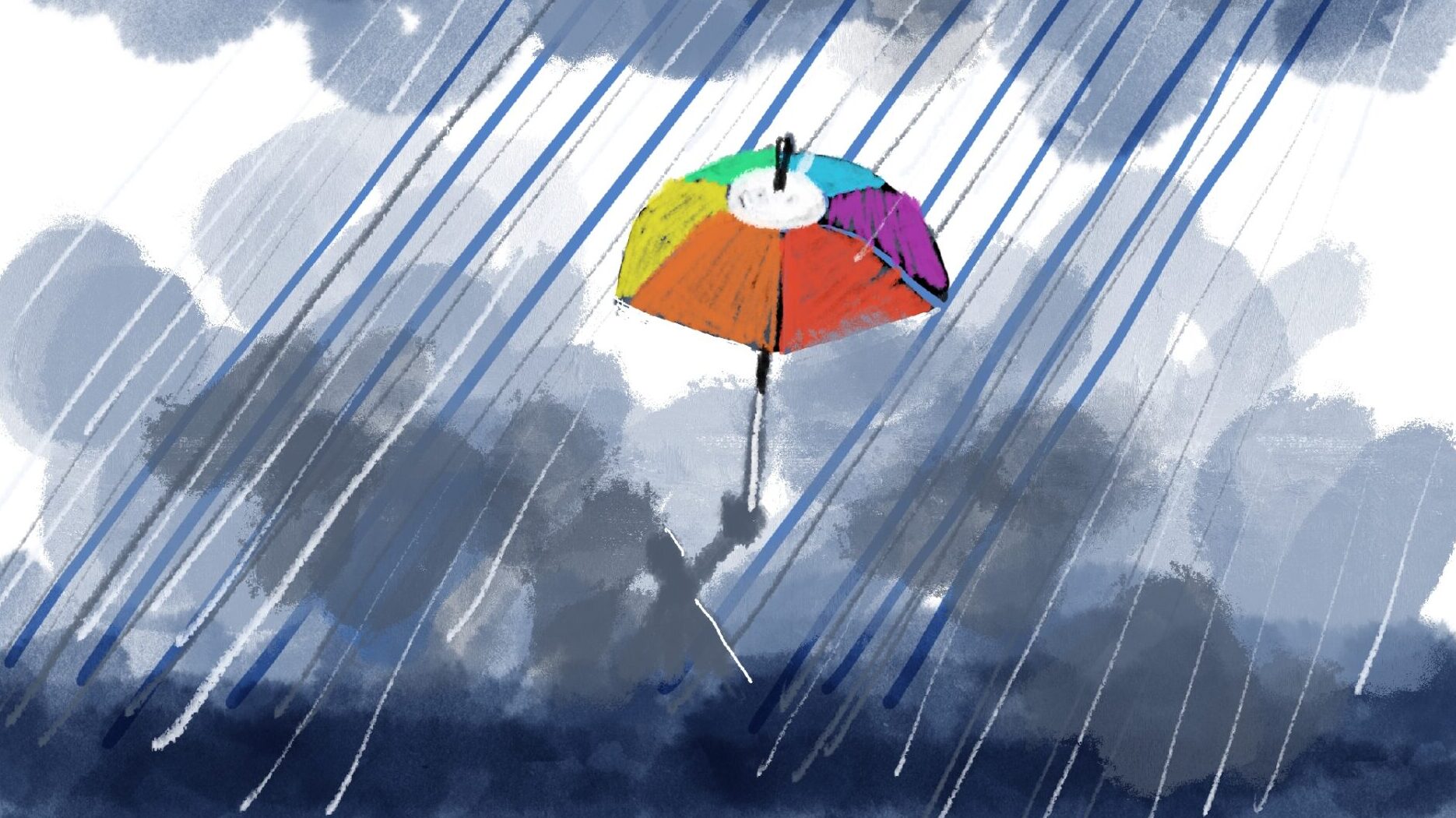The Group of Friends of the Platform on Disaster Displacement Meets in Geneva
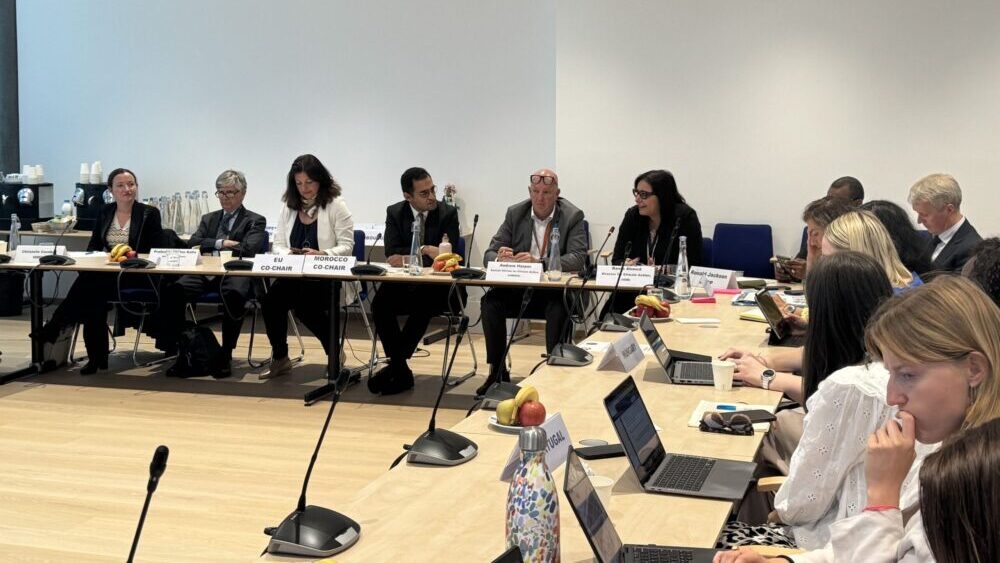
On 28 May 2025, the Permanent Mission of the Kingdom of Morocco to the UN Office in Geneva and the EU Delegation to the UN Office in Geneva, in their capacity as co-chairs, organized a meeting of the Group of Friends of the Platform on Disaster Displacement (PDD) for Member States in Geneva. This meeting served to raise awareness on disaster displacement ahead of the Global Platform for Disaster Risk Reduction which took place from 4–6 June 2025 in Geneva.
Ms. Suzana Simichen Sopta, representing the European Union, and Mr. Sofiane Kadmiri, representing the Kingdom of Morocco as Co-Chairs of the PDD Group of Friends, opened the meeting.
Mr. Kadmiri explained that the Group of Friends was established in 2019 as a part of the strategy of the Steering Group of the PDD to disseminate information about the Platform and its work, provide tools for member states interested in disaster displacement and strengthen awareness regarding the protection and assistance needs of disaster displaced persons. He highlighted the need for continuous engagement, renewed political will and collective ambition of the Member States during the current geopolitical shifts.
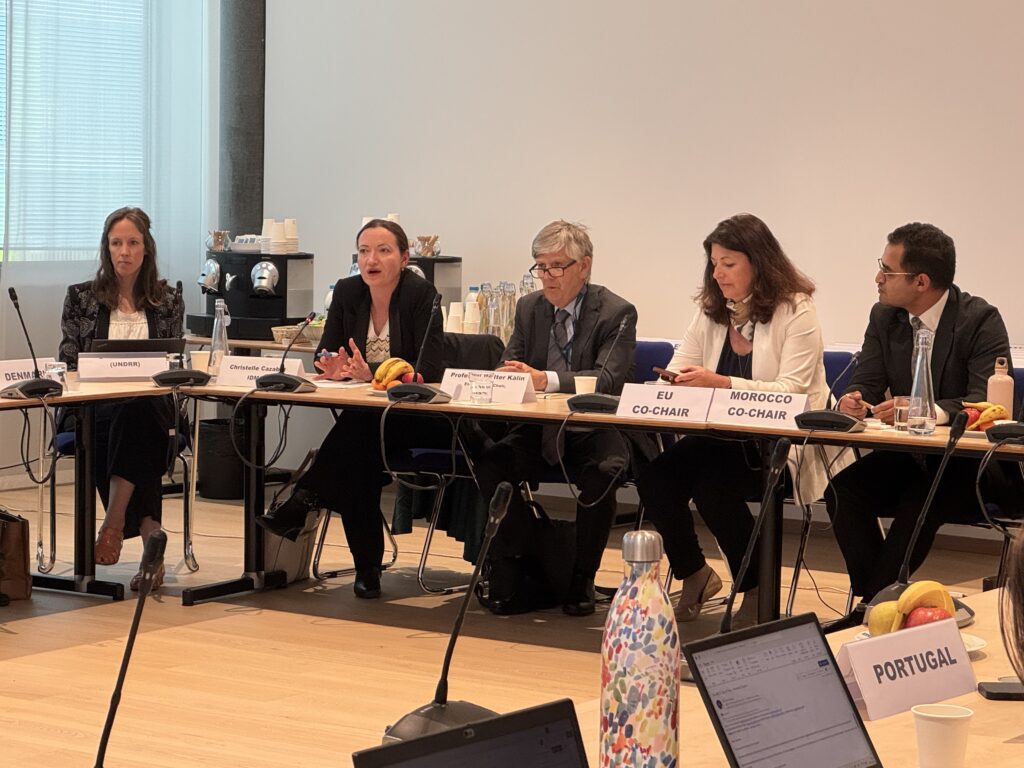
The introductory remarks were followed by a panel titled ‘Navigating the Nexus: Geopolitical Shifts, Budget Constraints, and Disaster and Climate-Induced Displacement’ which was moderated by Ms. Simichen Sopta. The panel included Ms. Christelle Cazabat from IDMC, Ms. Carolina Fuentes from the Santiago network, Ms. Rania Ahmed Sharshr from IOM, Mr. Andrew Harper from UNHCR, Prof. Walter Kaelin, the Envoy of the Chair of the PDD, and Mr. Ronald Jackson from UNDP.
Ms. Cazabat from IDMC presented data from their latest report, the 2025 Global Report on Internal Displacement (GRID) as well as the Countdown to 2030: Achieving Global Targets on Disaster Displacement. In 2024, IDMC recorded 45.8 million disaster displacements, the highest number ever recorded. Their most recent data indicates that among all natural hazards, storms were the main drivers of disaster displacement, closely followed by floods.
Ms. Fuentes from the Santiago network highlighted the recent milestones the network has reached since its establishment, including the network’s first technical assistance request from Vanuatu. The network is there to assist countries understand their needs, translate them into priorities, implement them and access the necessary resources. Ms. Fuentes highlighted that displacement is central to the loss and damage agenda.
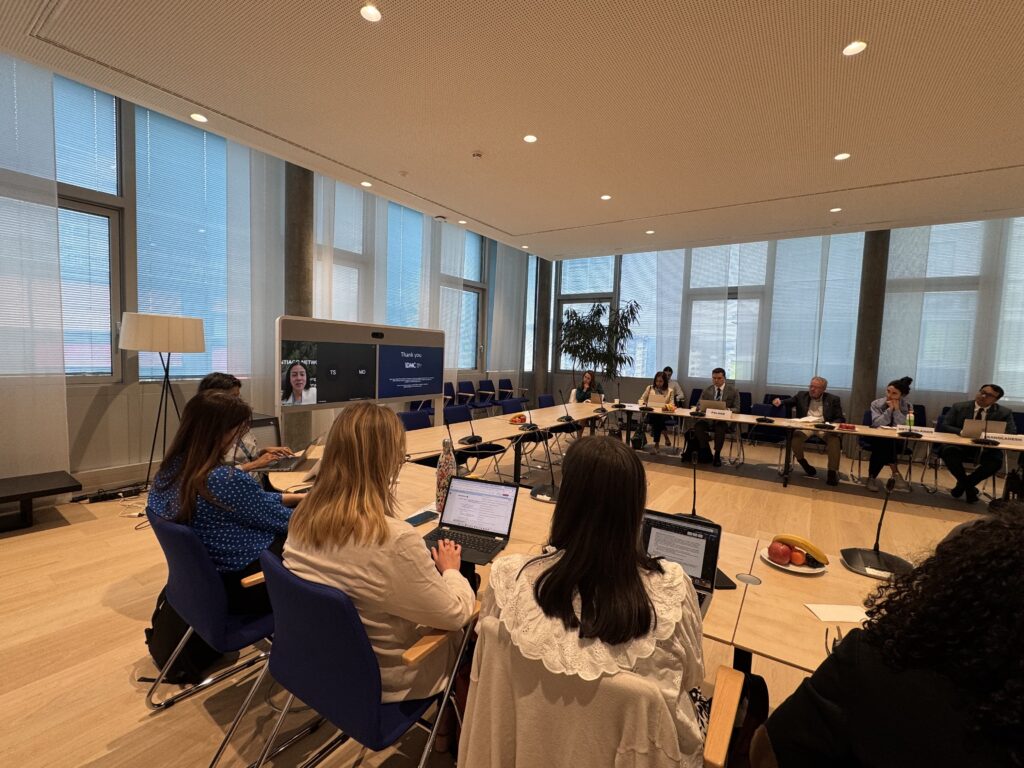
Ms. Sharshr from IOM highlighted the challenges posed by a shrinking funding environment and emphasized the need for collective reflection and renewed solidarity. She reaffirmed the IOM’s commitment to addressing human mobility in the context of disasters and climate change including through support to the implementation of different global and regional frameworks and commitments.
Mr. Harper from UNHCR emphasized that sustaining the work done by UNHCR and partners on this topic will require access to dedicated climate finance, as current resources that are already stretched to meet the needs of the most vulnerable are insufficient. He pointed to rising vulnerability and fragility in countries like Mali, where protection programs are being scaled back due to resource constraints. While existing mechanisms like the Fund for Responding to Loss and Damage are promising, Mr. Harper acknowledged that they are not yet fully operational and underscored the urgency of enabling climate finance access to deliver results on the ground.
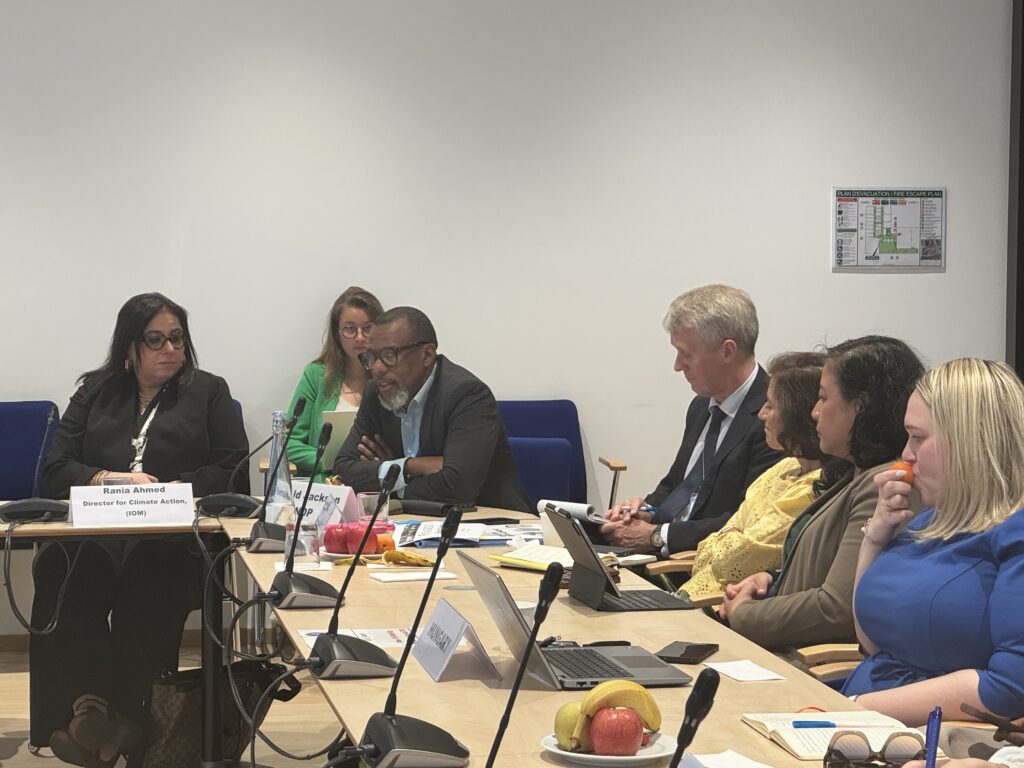
Mr. Jackson from UNDP noted that the implementation of the Sustainable Development Goals and the Sendai Framework are not making the progress that is needed and framed the current geopolitical landscape as both a potential impediment and an opportunity for advancing disaster risk reduction (DRR) and displacement solutions. He elaborated why DRR remains an effective entry point for action, noting that funding streams for DRR are increasingly scattered across sectors. Addressing climate change, DRR and displacement should be viewed as a cross-cutting objective rather than a standalone sector, with greater investment needed at the local level where impacts are most acute. Prof. Walter Kaelin, Envoy of the Chair of the PDD, gave an overview of the PDD’s state-led, multistakeholder engagement for the better protection of disaster displaced persons, and to prevent and reduce disaster displacement. While the PDD has made substantial progress in bringing visibility to the issue of disaster displacement and anchoring the topic in relevant global and regional policy frameworks, there is concern that global attention may be shifting elsewhere given the current geopolitical context and funding cuts. He underscored that the PDD’s role is becoming more important than ever, given its . ability to work across political silos and strengthen policy coherence. He noted that due to lack of funding, the continued functioning and existence of the PDD is at stake. He encouraged the Group of Friends of the PDD to support the work of the PDD,.
The following States and regional organizations participated in this meeting: Australia, Bangladesh, Council of Europe, Chile, Denmark, the European Union, Hungary, Mexico, Morocco, the Netherlands, the Philippines, Poland, Portugal, Senegal and Sudan. IDMC, IOM, UNDP, UNHCR and UNDRR were present as well.
Cover Photo: Platform on Disaster Displacement


